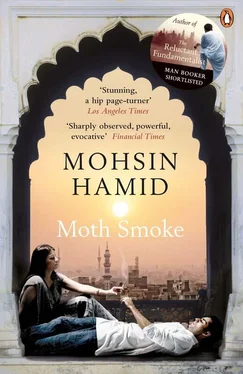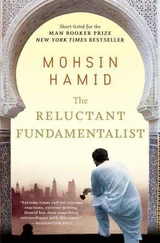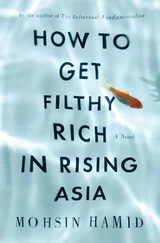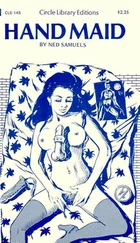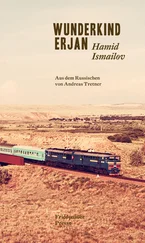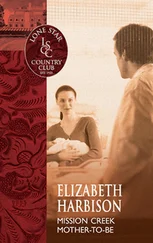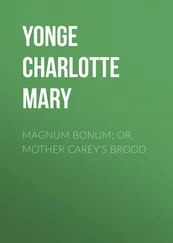On the rare occasions when they meet, Ro is angry and Lain is sad, because both sense that one of them is going nowhere.
Then Ro’s mother dies and Lain goes to law school and gets married, and the two hardly see one another for years. And when Lain returns to Pakistan, wife and son in tow, Ro seems more frustrated than ever by his situation. But Lain reaches out to him, tries to broaden his social circle, asks his father to find Ro a new job.
Lain still loves Ro. He’s still his best friend. And if Lain doesn’t invite Ro to every dinner and get-together he has at his place, it’s only because he knows Ro wouldn’t like the superficial people Lain now socializes with.
But Ro is jealous of Lain. His resentment, dormant since childhood, has begun to rumble. Lain can see it (he isn’t blind), but he knows Ro well and trusts him completely. He’s certain Ro’s anger will pass.
Then one day there is a reunion of sorts at the Punjab Club, and the same twenty-eight boys, more or less, who gathered for that Atari competition long ago are reunited. And again Ro is humiliated: this time he’s called a drug dealer and mocked because he has no job. So the next evening Lain goes over to console him.
And there, from the driveway, through an open window, the curtains spread wide, Lain sees his best friend on top of his wife, moving. Moving.
Now put yourself in Lain’s shoes.
What would that do to you?
Maybe I should have suspected it. After all, Mumtaz and Daru hit it off from the very beginning, and there were certainly enough hints. But hindsight is twenty-twenty, and besides, I trusted him.
I trusted her, too. I knew Mumtaz was up to something, wandering all over town, telling me she’d been to places I later learned she hadn’t, getting defensive whenever I’d ask what she did while I was away. But I didn’t mind, because I’d found out about Zulfikar Manto. I discovered his first article in the computer’s trash folder. And I let myself preview his later work, files hidden on an unmarked floppy disk in her handbag. I could see that she was passionate about it, so I let her keep up the pretense for as long as she wanted, certain she’d eventually tell me. I once gave her a book of Manto’s short stories in translation, a gentle hint, to see if she’d open up. And I was a little hurt when she kept her secret. But what could I say? I adored my wife. And I was thrilled that she was having adventures.
I just had no idea that journalism was only half of it, that Mumtaz and Daru were having an affair.
Once we were eating mangoes, the three of us together. I said, Sindhris are my favorite. Daru said, You can’t juice Sindhris, you can only cut them. I said, So what, cutting is more civilized. He said, It lacks passion, Chaunsas are my favorite, because they’re the best for sucking. I looked at Mumtaz and smiled and said, I like fruit from Sindh. She said, Both cutting and juicing have their merits. Then she said, I like Anwar Ratores, because they’re small and you can have two or three at a time. She said Daru and I were overly preoccupied with size.
I wonder if they were making fun of me, even then.
But I’m not going to treat you to a look inside the mind of the cuckold, a view into the near crack-up that accompanies the realization that your best friend is sleeping with your wife. I don’t want your pity, thanks. And even if I did want it, I couldn’t put what I endured into words. There’s a reason prophets perform miracles: language lacks the power to describe faith. And you have to land on faith before you can even begin to hike around to its flip side, betrayal.
So what did I decide to do?
Nothing.
I couldn’t confront Daru. You haven’t seen him when he’s angry: he can be a scary guy. If he’d become twisted enough to sleep with my wife, who knows what he might have done to me. I could have had him killed, I suppose. Shot like a favorite dog gone rabid. But I didn’t.
I told you, I’m not a bad guy.
And I couldn’t bring myself to confront Mumtaz either. Because I didn’t want to lose her. You see, I knew things hadn’t been going well in our marriage for some time. And even though I wasn’t sure if I could ever forgive her, I still loved her and I didn’t want her to leave me. Can you understand that? If you can’t, you’ve never been in love, not really.
But she left me anyway. And even though she denies it, I know she left me for Daru. My one consolation is that they won’t be seeing each other for a while.
So: no, I’m not sad to hear he killed the boy. I won’t lie to you. But I certainly didn’t frame him for it. I’m not the sort.
He was my best friend, after all.
My cocoon is too tight. Uncontained by my broken body, blood and wet flesh combine with cloth, bonding me to my bandages. Eyes shut by swelling see only orange, translucent light.
Wrapped inside my painkillers and the shell of my scars and bruises like a slow-growing larva, I wait.
She comes in with her palms pressed together, fingers touching lips, wide eyes above a prayer or a shush so forceful it requires both hands.
‘What happened to you?’
‘Don’t ask.’ The words whistle through the gap in my teeth, tickling the raw hole in my gum.
She takes my good hand in both of hers and strokes it with her cheek, runs her fingers over my face, over my bruises, my cuts, the train tracks of my stitches.
‘Who did this?’
I shut my eyes and reenter the dizziness that spins inside my head like two drinks too many too fast too strong. I can’t vomit it out. I’ve tried. I can only hold on to myself in the whirlwind, staring up at Shuja’s father, crying, begging. The barrel of his shotgun pressing against my abdomen like a needle, suddenly sharp. Gasping as my skin rips, as the needle slides into my body, pushing muscle and tissue aside, tearing through me, snapping my back, pinning me to the ground, mounting me like an insect on a board. And the nausea grows stronger, pulling me into itself, twisting me, wrenching at my guts, becoming unbearable.
I open my eyes. I want to kill him.
She sits down on the bed beside me.
I protect my rib cage with my arm.
‘Where’s your family?’ she asks.
‘I haven’t told them.’ I don’t want to explain, don’t want to see them until I’ve recovered and there’s no reason for questions. But that won’t happen, not in a lifetime, not with a dead finger and a crushed nose and a smile that can’t hide the darkness inside my head.
‘How will you pay for this?’
‘I don’t know.’
She slips her arm around my shoulders and cradles my head against her breast.
We breathe together. Slowly.
Time passes, flowing, a long, less and less painful sigh. And I shut my eyes.
Pain becomes only physical again.
Fear recedes.
Anger flickers for a moment longer, gas in the pipes after the stove has been turned off.
She says, ‘I’ll take care of you.’
And I feel gratitude and happiness rise up inside me: old friends, long-forgotten and yet much missed.
When the doctors tell me I can leave, she drives me home in my car. Its windows have been smashed, even the little triangles above the rear doors, but when the engine comes to life I smile, feeling unfamiliar muscles in my face flex.
In my room she lays me down on my bed, pulls the curtains shut, and undresses me.
Then she finds a bucket of cool water and a soft cloth and a bar of Pears soap. And she bathes me.
She begins with my eyes, stroking them shut. She follows my throat down to my collarbone, to the inside of my arm, to the skin between my fingers. To my chest, avoiding my broken rib, to my stomach, the bones of my pelvis. My feet, my shins. My thighs.
Читать дальше
